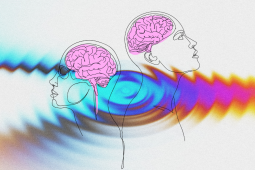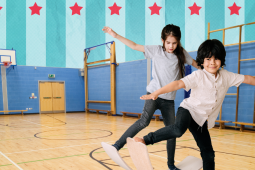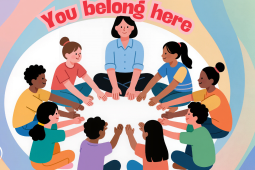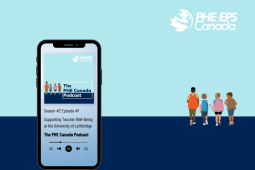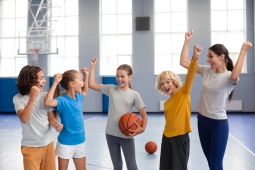Share2Care 2018 : Q&A with Don Mills Middle School

Share2Care is a mental health activation initiative gathering promising practices from across the country to share and inspire others to take action in their class and/or school community. As part of the PHE Canada Teach Resiliency program, Share2Care aims to recognize and share unique, innovative, and promising mental health practices that are making positive impacts on students, school staff, or both.
PHE Canada will share the success stories of the five school initiatives and others on the PHE Canada blog.
Promising Practice - POD C.A.R.E. - Character and Confidence, Attitudes, Relationships, and Empathy
Don Mills Middle School (DMMS) is located within the Don Mills community of Toronto. The school population is 409 students from grade 6-8. The school has a diverse population of students of different cultures that speak a variety of languages, while 26% of the students have an IEP (105 IEPs).
PHE Canada: what inspired the mental health initiative?
POD CARE is a mental health and well-being initiative that arose out of a need to build connections with the students and have meaningful discussions with the hope that they can build trusting relationships. The POD CARE initiative helps to create an environment where students know there is somewhere to turn when they need to talk.
PHE Canada: What activities were offered in this initiative?
The first week of every month, all teachers meet with their homeroom classes for two periods, to discuss issues related to mental health and well-being. We always start with a community circle in which we discuss the topic for the month using guiding questions created by teachers. Afterwards, students work on thought-provoking activities related to the topic such as written reflection, role-playing and the brainstorming of causes of and solutions to mental health and wellbeing issues in class, school and society. All staff is included in the POD CARE.

The last Wednesday of every month, staff have a special POD CARE staff meeting where we learn and review the topic of discussion for the next month's POD CARE meeting with the students. We discuss the questions for our community circle and the activities we will do with the students. We continue the discussions throughout the month and try to incorporate the themes into our curriculum lessons such as discussions in Language and role play in Drama classes.
Parents are made aware of the POD CARE discussion themes through our monthly newsletter and families are encouraged to continue these discussions at home with their children to help reinforce what was being discussed at school. At the end of the month, students gather at a student-led assembly that celebrates all the learning they did about the topic for that month.
PHE Canada: What are the learnings from your initiatives?
Students want and need to talk openly and honestly about mental health and well-being issues with their teachers and classmates. Students need to be taught coping mechanisms and how to deal with stress, anxiety, bullying, and other mental health issues.
To create an environment where students feel they can share and get help from school staff, we need to nurture positive relationships between staff and students.
PHE Canada: What is the overall impact of your initiatives?
We have seen an improvement in student-teacher interaction. In our most-recent school survey, 71% of our students said that they felt welcome at our school and even more said that they felt there was someone they could go to if they needed help. The survey result is a significant improvement from the survey we took at the end of last year.
Our students have positive comments about topics of the circle discussions and look forward to the Pod CARE sessions with their classes. For the staff members, they are also more comfortable talking to students about difficult topics.
PHE Canada: How are your initiatives or promising practices sustainable?
This initiative is sustainable because it is based on building positive relationships and having open and honest discussions. Our action plan and Pod CARE schedule, themes, and activities could easily be shared and adapted by other schools through shared documents and folders.
PHE Canada: Can you highlight the inclusivity of your initiatives?
All students and teachers in our school take part in the Pod CARE at the same time every month. Student and teacher contribution is an integral part of the planning process. While developing our discussion questions for the circle talks, we consider different voices and opinions. The activities are designed to be open-ended and have different entry points for all students' needs and learning styles.



